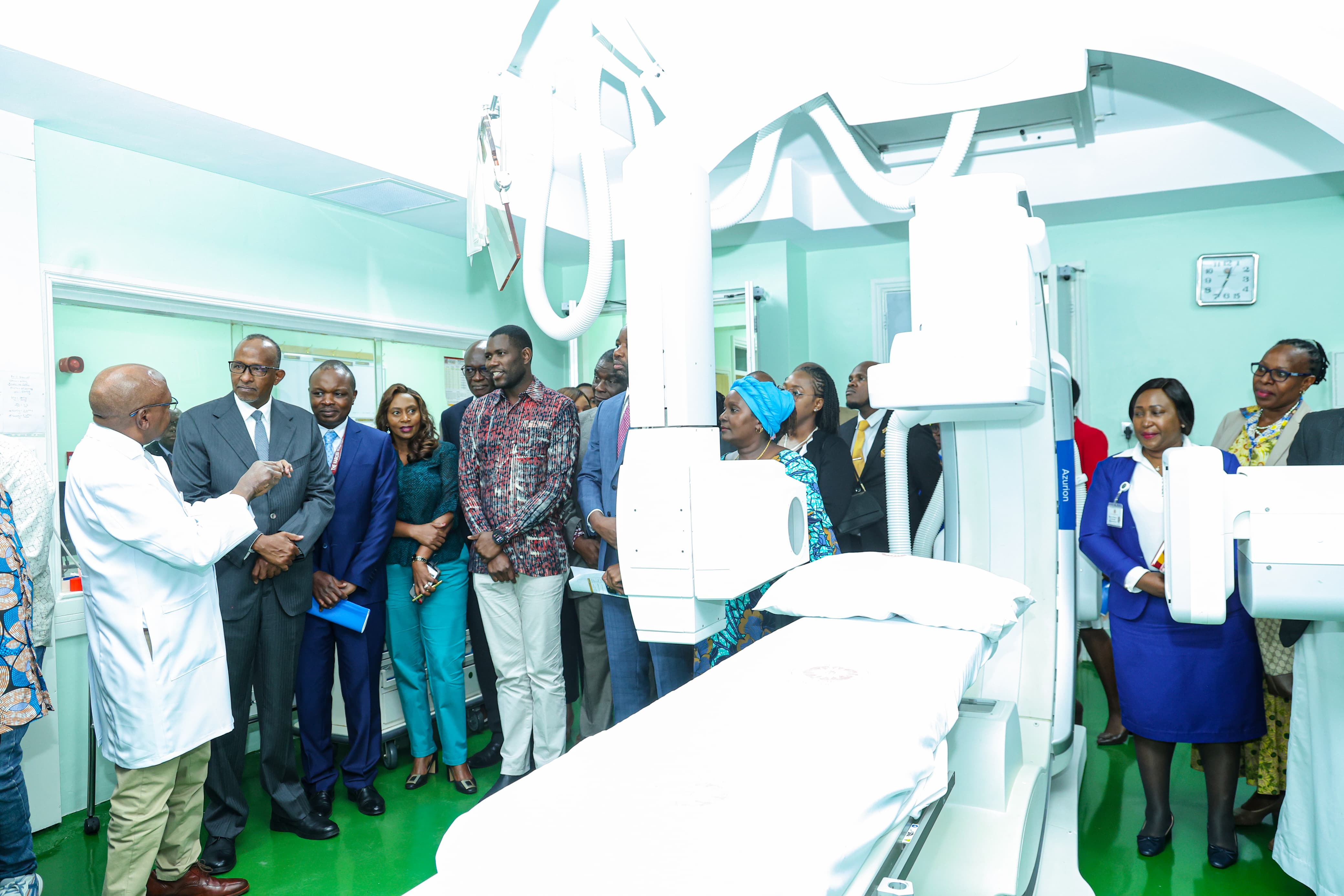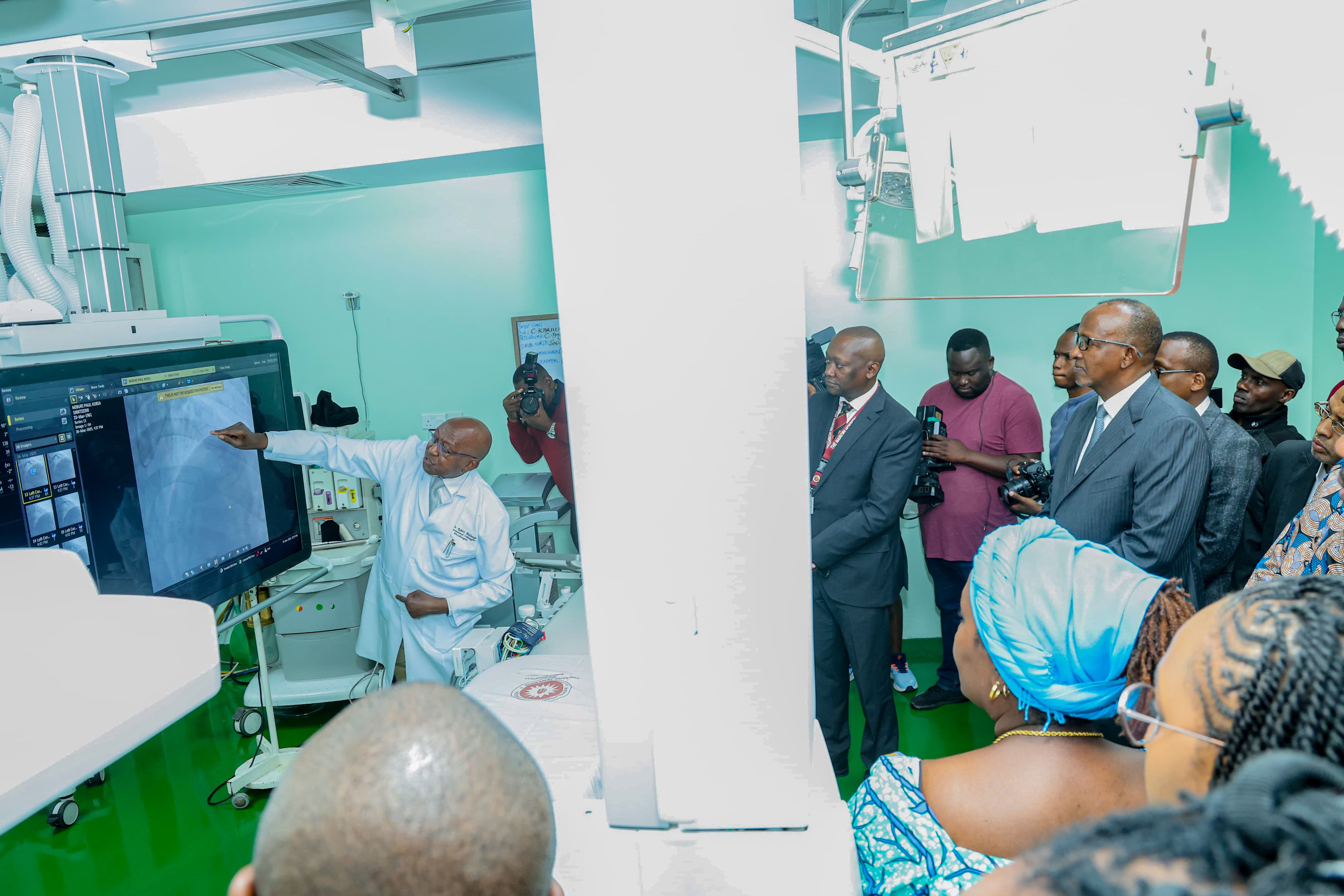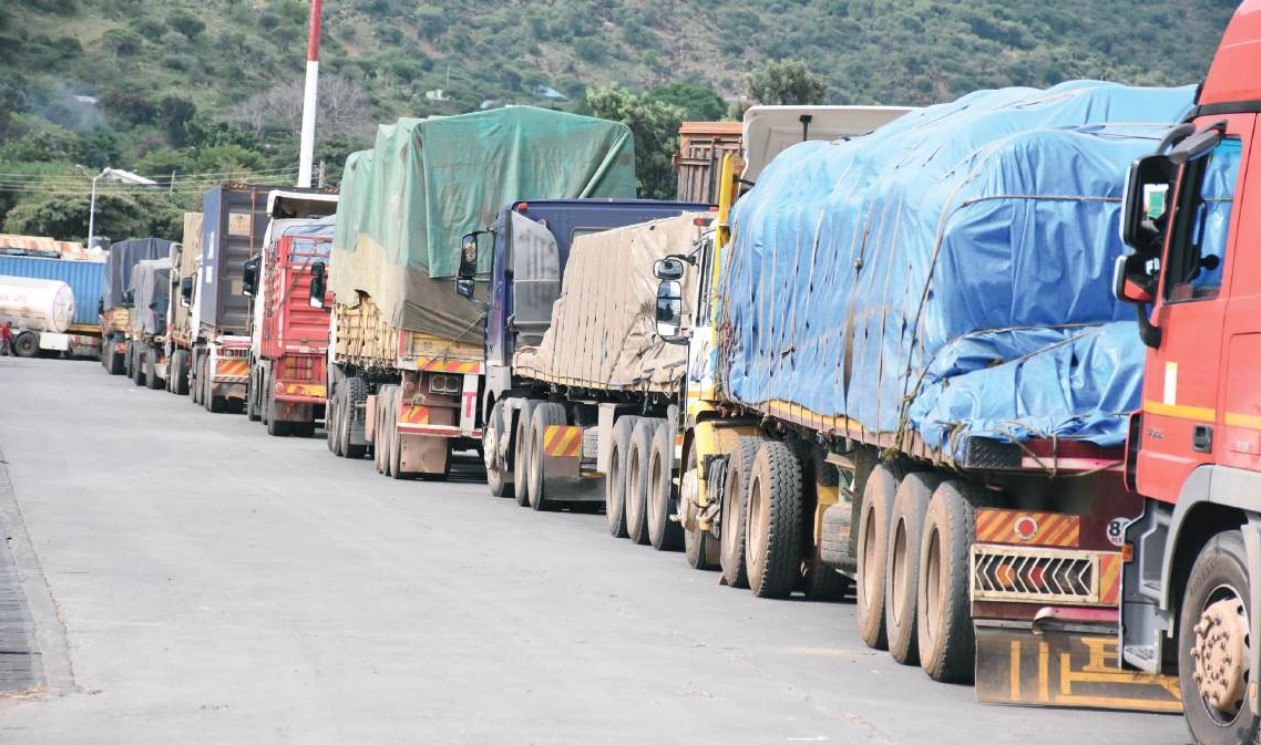 A medic
at the Nairobi Hospital explains to the Ministry of Health Cabinet Secretary, Aden Duale and other MOH officials, led by the PS Medical Services, Dr Ouma
Oluga on the operation of the newly introduced AI-powered
256-slice CT Scanner at the hospital. (Photo Courtesy).
A medic
at the Nairobi Hospital explains to the Ministry of Health Cabinet Secretary, Aden Duale and other MOH officials, led by the PS Medical Services, Dr Ouma
Oluga on the operation of the newly introduced AI-powered
256-slice CT Scanner at the hospital. (Photo Courtesy).
Cancer diagnosis and treatment can cost a fortune, especially when the only alternative is to seek treatment abroad.
The cost usually becomes a burden and takes a toll on the already worried patient, family and relatives who are also grappling with other expenses.
This makes cancer patients feel more like a suspect convicted to a death sentence not because of the disease itself but the overwhelming cost of treatment.
Due to lack of adequate diagnostic tools locally, patients have for a long time been seeking for such healthcare abroad meaning more costs which in turn forced families, relatives and friends to get together and dig deeper into their pockets to save dire situations.
Less fortunate Kenyans have had to sell any of their available property, like land and cattle or conduct community and WhatsApp fundraisers to buy air tickets and cater for the cost of treatment abroad.
 A medic at the Nairobi Hospital explains to the Ministry of Health Cabinet Secretary, Mr. Aden Duale (Centre, in spectacles) and other MOH officials on the operation of the newly inaugurated AI-powered 256-slice CT Scanner at the hospital. (Photo Courtesy).
A medic at the Nairobi Hospital explains to the Ministry of Health Cabinet Secretary, Mr. Aden Duale (Centre, in spectacles) and other MOH officials on the operation of the newly inaugurated AI-powered 256-slice CT Scanner at the hospital. (Photo Courtesy).
A week ago, Health Cabinet Secretary, Aden Duale, commissioned an AI-powered 256-slice CT Scanner at the Nairobi hospital, giving Kenyans hope and a guarantee of better treatment right here in the country
This is the first ever 256 CT Scanner in the entire East African region and ushers a new era of accurate, early diagnosis and improved outcomes.
This cutting-edge scanner is for sure a guiding light and marks a significant milestone that will revolutionise Kenya's healthcare system as it provides better detection of serious illnesses and patients can start treatment soon after diagnosis.
Data from the National Cancer Institute of Kenya indicates that cancer stands as the third leading cause of death in Kenya, with approximately 47,000 new cases and between 27,000 to 32,000 deaths being reported annually, with breast cancer leading at approximately 6,799 women being affected annually and with a mortality rate of about 3,107 deaths per year.
This high mortality rate is largely attributed to late diagnosis.
The arrival of the 256-slice CT scanner in Nairobi directly addresses this issue and will have a positive outcome in addressing the high mortality rate in cancer, kidney diseases and other serious illnesses by detecting them before the advanced stage
Unlike conventional machines, the 256 CT scanner captures high-resolution images of the body in seconds, thus enabling early and highly accurate diagnosis.
This means that patients can commence treatment sooner, and this is an essential factor in significantly reducing deaths and improving survival rates in Kenya.
The scanner also reduces the need for expensive overseas referrals, cutting transport costs and alleviating the heavy financial burden from families.
This is not just a technological advancement, but a lifesaving innovation and a milestone that marks the beginning of a revolution in Kenya’s healthcare system.
For a country where nearly every household knows someone affected by cancer, the significance of this scanner cannot be gainsaid.
Whether it’s a child, a parent, a grandparent, or a friend, many Kenyans have had firsthand experience of the emotional and economic toll of cancer.
Following a partnership between The Nairobi Hospital and The Ministry of Health, patients covered under the Social Health Authority (SHA) can now access subsidised treatment for both cancer and kidney-related illnesses.
This means thousands of Kenyans covered under SHA can now receive world-class diagnostic care without the need to leave the country or sell
Another major benefit of the 256 CT scanner is that it has low radiation exposure.
Traditional CT machines, though useful, often expose patients to higher levels of radiation, which can be harmful to patients, especially with repeated scans.
The new 256-slice technology is faster, safer, and less invasive, therefore making it a better option for long-term care and monitoring.
Through this innovation, the Government Spokesperson Dr. Isaac Mwaura says, Kenya will save a whooping Sh14.7 billion annually, money that would otherwise be spent on medical tourism and overseas treatments.
“With this advancement, Kenya takes a bold step toward self-sufficiency in advanced healthcare services by reducing dependency on other countries.
It is not just an upgrade, but a symbol of hope that represents a future where Kenyans will no longer have to choose between financial ruin and the survival of the people so dear to them,” observes the Government Spokesperson.
The writer, Rahab Adhiambo, works at the Office of Government






















